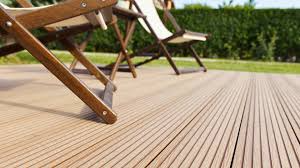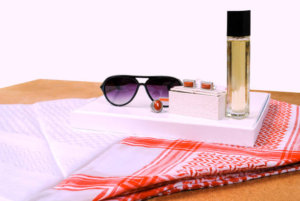Vegan Silk Sheets Luxurious, Sustainable, and Cruelty-Free Bedding
In recent years, the world has seen a significant shift towards more conscious and ethical choices in every aspect of life. This includes the products we purchase, the food we consume, and even the materials we use for our everyday comforts. One area that has gained attention is the bedding industry, specifically the rise of vegan silk sheets. Vegan silk provides the luxurious, soft feel of traditional silk, but without harming animals or the environment. This 100% unique article will explore the concept of silk sheets, their benefits, different materials that serve as alternatives to silk, and the broader implications of choosing cruelty-free bedding.
What Are Vegan Silk Sheets?
Vegan sheets are bedding items made from materials that replicate the smooth, glossy texture and luxurious feel of traditional silk, but without using any animal-derived products. Traditional silk is produced from the silkworm’s cocoon, which involves boiling the pupae to extract the threads. The process can be harmful to the worms, and many consumers who are environmentally conscious or adhere to vegan and cruelty-free lifestyles are seeking alternatives that align with their values.
The rise of vegan silk sheets is part of the broader movement toward plant-based and synthetic fibers that don’t exploit animals. These vegan-friendly alternatives still provide a soft, comfortable, and breathable experience, but they are made from natural or synthetic materials that do not involve animal cruelty.
The Benefits of Silk Sheets
- Cruelty-Free and Ethical One of the most compelling reasons to choose silk sheets is that they are cruelty-free. Traditional silk production involves the harvesting of silkworms, often through a process that kills the insects. Vegan sheets, on the other hand, ensure that no animals are harmed in their production. For vegans and ethical consumers who prioritize cruelty-free products, these alternatives provide an opportunity to enjoy luxury without compromising their values.
- Sustainability Many vegan silk materials are derived from natural, renewable resources that are environmentally friendly. For instance, Tencel (Lyocell) and bamboo fabric are biodegradable, meaning they won’t contribute to the growing problem of textile waste. Additionally, these materials often require fewer pesticides, fertilizers, and water than traditional crops like cotton. The sustainable nature of these fabrics makes vegan silk sheets a good choice for eco-conscious shoppers.
- Breathability and Comfort Silk sheets are designed to mimic the feel of traditional silk, providing a luxurious, smooth surface that feels soft against the skin. Many plant-based materials used in vegan silk alternatives, such as bamboo and Tencel, are highly breathable and moisture-wicking. This helps to regulate temperature, making vegan sheets comfortable for year-round use. Whether in warmer months or colder seasons, these sheets ensure a cool and comfortable sleep environment.
- Hypoallergenic Properties Silk sheets made from materials like bamboo and Tencel are hypoallergenic, meaning they are less likely to irritate sensitive skin or cause allergic reactions. This is particularly important for individuals who are prone to allergies or have sensitive skin. The smooth surface of these fabrics also reduces friction, making them less likely to cause irritation or discomfort.
- Durability While traditional silk can be delicate and requires special care, many vegan silk alternatives are designed to be more durable and easier to maintain. Tencel, for instance, is a strong, resilient fabric that resists wrinkles and holds its shape over time. Bamboo fabric is also durable, and when properly cared for, can last for years without losing its softness or sheen.
- Affordable Alternative Silk sheets can often be more affordable than traditional silk sheets. The cost of producing traditional silk can be high due to the labor-intensive process involved in harvesting and processing the silk fibers. In contrast, many vegan silk alternatives, such as polyester satin or bamboo fabric, offer a similar luxurious feel at a fraction of the cost. This makes vegan silk an attractive option for those looking for affordable, high-quality bedding.
Types of Vegan Silk Fabrics
There are several materials used in the creation of vegan silk sheets, each offering unique benefits. Below, we will explore some of the most popular and sustainable materials used as alternatives to traditional silk.
1. Tencel (Lyocell)
Tencel, also known as Lyocell, is a plant-based fiber derived from sustainably sourced wood pulp, often from eucalyptus trees. The fibers are produced through a closed-loop process that recycles water and solvents, making it an eco-friendly choice. Tencel is incredibly smooth and soft, often compared to the texture of silk, and is highly breathable and moisture-wicking. These properties make Tencel a popular choice for silk sheets.
In addition to its softness and comfort, Tencel is biodegradable and resistant to wrinkles. It is also naturally hypoallergenic, making it suitable for people with sensitive skin. Furthermore, Tencel is a highly sustainable material because the eucalyptus trees used in its production require minimal water and pesticides to grow, making it one of the most environmentally responsible choices in the fabric world.
2. Bamboo Fabric
Bamboo fabric is another plant-based alternative to traditional silk. The process of turning bamboo into fabric involves extracting fibers from the bamboo plant and processing them into a soft, silky material. Bamboo fabric is naturally moisture-wicking, antimicrobial, and hypoallergenic. These qualities make it a fantastic choice for sheets, as it helps to keep the skin dry and free from bacteria.
Bamboo fabric is also highly sustainable. Bamboo is a fast-growing plant that requires little water and no pesticides to thrive, making it an environmentally friendly option. It also has a natural ability to resist odors and bacteria, making it an excellent choice for individuals who are prone to allergies or skin irritations.
3. Satin Made from Polyester or Nylon vegan silk sheets
For those who are seeking an affordable, vegan-friendly alternative to traditional silk, satin made from polyester or nylon is a popular choice. While these materials are synthetic, they mimic the luxurious appearance and feel of silk, offering a shiny, smooth surface that is both stylish and comfortable. Polyester satin, in particular, is durable, easy to care for, and resistant to wrinkles, making it an excellent option for low-maintenance bedding.
Previous article; Choosing the Right Replacement Cushions for Patio Furniture
Although synthetic fibers like polyester and nylon are not biodegradable, they can be recycled, and many manufacturers are working to create more sustainable versions of these materials. However, polyester satin still offers an accessible and cruelty-free option for those looking for silk-like sheets on a budget.
4. Organic Cotton with Satin Weave
Organic cotton is another popular choice for those looking for a natural, eco-friendly material. While not as smooth as traditional silk, cotton with a satin weave can still offer a soft, luxurious feel. The satin weave refers to the pattern used in the fabric’s construction, which creates a smooth surface with a slight sheen. Organic cotton is grown without the use of harmful pesticides or fertilizers, making it an environmentally responsible choice.
Although cotton is less silky than alternatives like Tencel or bamboo, its breathable nature and hypoallergenic properties make it an ideal choice for those who prefer natural fibers. Organic cotton is also highly durable and can last for years with proper care.
How to Care for Silk Sheets
One of the concerns when purchasing any luxury bedding is how to care for it. Vegan silk sheets, although more durable than traditional silk, still require some attention to maintain their softness and shine.
- Read the Care Instructions: Always check the care label on your sheets before washing them. Different fabrics may require different care methods, so it’s important to follow the manufacturer’s guidelines.
- Wash in Cold Water: To preserve the integrity of the fabric, wash your silk sheets in cold water on a gentle cycle. This will help prevent damage and keep the fabric soft.
- Use Mild Detergent: Choose a mild, plant-based detergent to protect the fibers and maintain the smoothness of the fabric. Avoid using harsh chemicals or bleach, which can break down the fibers over time.
- Air Dry: While it may be tempting to toss your sheets in the dryer, it’s best to air dry them by hanging them up or laying them flat. High heat can damage the fabric and cause it to lose its softness and sheen.
- Avoid Fabric Softeners: Fabric softeners can leave a residue on your sheets, which can affect their breathability and softness. Instead, use natural methods like vinegar in the rinse cycle to help keep your sheets soft.
Conclusion
Vegan silk sheets offer the perfect combination of luxury, comfort, and ethics. Whether you’re looking to reduce your environmental footprint, avoid animal products, or simply enjoy the smooth, silky feel of high-quality bedding, vegan silk alternatives provide a variety of options to suit your needs.
Materials like Tencel, bamboo, and polyester satin offer soft, breathable, and hypoallergenic options that are not only cruelty-free but also eco-friendly. Choosing vegan sheets is a small but impactful way to contribute to a more sustainable and ethical world. By making conscious decisions about the products we use, we can help reduce our impact on the environment and promote a more compassionate society.
As the demand for vegan and sustainable products continues to grow, it’s likely that more innovations in bedding will emerge, offering even more luxurious and ethical alternatives to traditional materials. In the meantime, silk sheets remain a fantastic option for anyone seeking a cruelty-free and eco-friendly way to enhance their sleep experience.











Post Comment